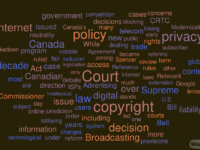Copyright term extension has emerged as a major policy issue in Canada in recent months. Canada’s general copyright term is life of the author plus 50 years and successive governments have rejected lobbying pressure to extend by an additional 20 years. That changed with the new NAFTA, which includes a life plus 70 years requirement. Canada negotiated a 30 month transition period with no need to extend the copyright term during that time. The Canadian copyright review recommended that any extension include a registration requirement for the extra 20 years.
Paul Heald is a law professor at the University of Illinois, where he has led the world in conducting extensive empirical analysis on the effects of copyright term extension and the value of the public domain. His work has used some creative methods examining data on sites such as Amazon and Wikipedia to learn more about the effects of term extension. He joined me on the podcast to discuss his findings and new work he has been doing on the data in Canada.












